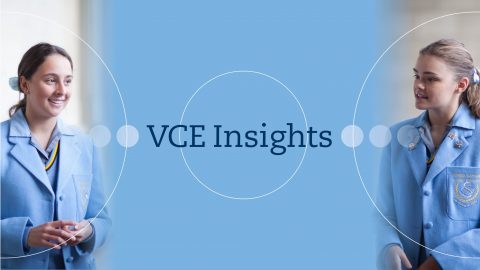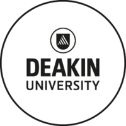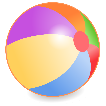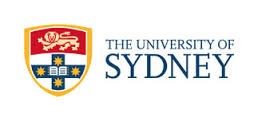VCE Insights

VCE Insights
Last week I reminded the Year 12 students about the trial exams coming up during the Term 3 break. Trial exams for all Unit 3/4 subjects studied at St Catherine’s School are held over three days from Wednesday 3 October to Friday 5 October. I encourage you to highlight these dates in your calendar so that you can ensure your daughter is available to attend her scheduled trial exams. A schedule will be released to students and parents by the end of August.
In this edition of VCE Insights, you will find comprehensive updates on current offerings from tertiary institutions across Australia, as well as details on key dates and academic schedules for the upcoming fortnight.
Thursday 9 August – VCE (Years 11 & 12) Parent Teacher Interviews
Below is a list of subjects with SACs and Outcomes scheduled over the coming weeks. Please note that subject teachers will communicate with your daughter regarding the specific date their SAC or Outcome will run.
Term 3 Week 4
Year 12 SACs
- Biology
- Business Management
- Chinese SL/SLA
- Geography
- Further Maths
- Psychology
- Specialist Maths
Year 11 Outcomes
- Biology
- Studio Arts
- Maths Methods
- Chinese SL/SLA
- French
- Health and Human Development
- Visual Communication and Design
Term 3 Week 5
Year 12 SACs
- Studio Arts
- Economics
- Physics
- Music Performance
Year 11 Outcomes
- Psychology
- Studio Arts
- General Maths
- Theatre Studies
- Literature
- Physical Education
- History – 20th Century
Opportunity for Year 11 Students – SONY Holiday Camp
Last week I spoke with the Year 11 students about an opportunity open to them in December this year.
The SONY Camp is a Holiday Camp for children with disabilities, allowing respite for them and their family just before Christmas time. This camp represents the gift of giving at Christmas. Children are aged between 6 and 15 years.
This year the camp will run for three days from Friday 14 December to Sunday 16 December 2018 at Scotch College. There will be two compulsory training days on Saturday 8 and Sunday 9 December 2018 at Scotch College. There are two schools involved, Scotch College and St Catherine’s School. Each school will provide 16 students where, during this time they will be asked to look after a child day and night. It will be a time of joy, with singing, swimming, picnics, games and parties. It will be a challenging time, with responsibility and hard physical work. The camp is sponsored by SONY Australia. The program is supported by volunteer teachers, doctors and nurses from both Scotch and St Catherine’s for the duration of the camp.
If you have any questions, please do not hesitate to contact me. More information, a short video and nomination forms will be uploaded onto the Year 11 Portal page shortly.
Mrs Melissa Braddy, Head of Year 11
Year 12: Plan and Pace
As students approach the middle of their final full term at school, it is a timely reminder for the girls to ‘plan and pace’. Careful planning allows students to pace themselves and reduces the risk of the dreaded ‘cram the night before’. I hear much talk in the common room about multiple SACs in one week, or at times, even in one day. I cannot stress enough that planning is key during these final weeks and makes excellent preparation for their upcoming exams. Over the past weeks, I have been meeting with each student individually to discuss how their year has been. Those who have enjoyed this year the most, or feel at ease with what’s to come, have had one thing in common…organisation. I encourage students to look beyond this week and next week and instead, plan the rest of their term.
Ms Lilly Dusting, Head of Year 12
Dates to Diarise in Term 3
- University / TAFE Open Days 2018 – throughout August
- Year 12 VTAC applications – throughout August and September
VET stands for Vocational Education and Training, and vocation refers to work or employment. VET in the VCE programs are designed to give students an exposure to practical skills and an understanding of what it is like to ‘learn through doing’. So, students can opt to do a VET subject while completing their VCE and, in most cases, the VET qualification contributes towards the VCE and the ATAR.
Visit VET in the VCE.
News from Monash University
Entry Scheme for the Bachelor of Science
Students who study more than one science subject in Year 12 may be eligible for a subject adjustment, which can add up to a maximum of eight points to their aggregate. For example, four science subjects (with a study score 25 or over) equals eight subject bonus points. Try the VTAC subject bonus tool to estimate – VTAC Bonus Tool.
Explore the World of Science with Mysci
MySci is a three-day science program taking place in January 2019, specifically designed for Year 11 and 12 students.
This program schedule will include:
- hands-on workshops
- access to our brilliant teaching facilities
- opportunity to meet some of our Research Scientists
- exposure to potential career pathways
- activities with the Young Scientists of Australia
- social activities.
The cost is only $95.00 per student, and will be held at the Monash Science Precinct, Clayton Campus.
Find out more, or register, at Explore the World of Science with Mysci
IT vs. Computer Science vs. Software Engineering
The Faculty of Information Technology offers both breadth and depth, giving students an excellent choice of courses and units in our undergraduate programs.
The hardest decision can be choosing between courses, so here is a summary to assist in decision-making:
IT
- Application of computer-based technologies and systems to meet individual and organisational information needs
- Highly practical: use, develop and manage IT based systems
- Focus on a wide range of aspects of IT: from technical computing, games, interactive media to information and business-related themes
- Choose from 5 majors and 14 minors
Computer Science
- Theory and practice of applying computers and software to problem solving
- Design algorithms (instructions for computers) and data structures (ways to store information)
- Acquire practical programming skills to implement these in efficient software that solves real-world problems
- Choose a specialisation from Advanced Computer Science or Data Science
Software Engineering
- Apply engineering principles to systematically analyse, develop and improve software to ensure it runs effectively, safely and securely
- Learn how to program on a large scale – build complex systems across large teams to formally validate and verify the code
- Prepares students to be good at three main areas of Software Engineering: quality, process, and design
 Open Day Travel and Accommodation Offer
Open Day Travel and Accommodation Offer
Deakin University wants students and their families to get the most out of Deakin Open Day! To help them do this, Deakin is offering its guests travel reimbursements and on-campus accommodation discounts to help with the cost of attending Open Day.
Travel Reimbursement Offer
Attendees travelling 100km or more to attend one of the Deakin Open Days can register to receive a $50 travel reimbursement to assist with the cost of their travel.
Warrnambool Free Accommodation Offer
Why not make a weekend of it and spend a night on campus, on us! Experience Warrnambool explore the beautiful surrounds and enjoy the student accommodation for free!
Geelong Waterfront Accommodation Discount
Spend a night in our brand new, student accommodation – Brougham House – at a great discounted rate of just $55 per person.
Places are limited, and conditions apply.
Find out more and register at Deakin Open Day, choose a campus and select Getting There.
A barrister is a lawyer with specialist skills in representing clients in court or in a negotiation and advising on court processes. Many barristers are specialists in particular areas of law, such as criminal law, corporations law, property law or personal injury.
Any lawyer can become a barrister. Becoming a barrister is about your skills and abilities, not what school you went to or what ATAR you got. The Bar has diverse membership from many ethnic backgrounds. You can come to the Bar at any age – the youngest barristers are in their 20s and the oldest are in their 80s. The Bar is short for the Victorian Bar which is the professional association representing over 2000 barristers in Victoria.
So, how are barristers and solicitors different? Barristers and solicitors are types of lawyers. Solicitors are generally the first lawyer that a client will see to explain their legal problem. Not all legal issues end up in court – for example, drafting a contract or a Will, or looking after buying and selling a house – so not all legal issues require the expertise of a barrister.
Find out more at Vic Bar – Student Engagement
 Exercise Science and Sport Degrees in Victoria
Exercise Science and Sport Degrees in Victoria
| UNIVERSITY | COURSES | VCE PREREQUISITE SUBJECTS | ATAR 2018 |
|
M – Melbourne |
Exercise & Sport Science | Units 3 and 4: a study score of at least 30 in English (EAL) or at least 25 in English other than EAL; Units 3 and 4: a study score of at least 25 in one of Biology, Chemistry, any Mathematics, Physical Education, Physics or Psychology. | 58.60 (M) |
|
M – Melbourne |
Business (Sport Management) | Units 3 and 4: a study score of at least 25 in English (EAL) or at least 20 in English other than EAL. | 80.35 (M) |
| Exercise & Sport Science | Units 3 and 4: a study score of at least 30 in English (EAL) or at least 25 in English other than EAL. | 61.80 (G) 73.00 (M) |
|
| Sport Development | Units 3 and 4: a study score of at least 25 in English (EAL) or at least 20 in English other than EAL. | 65.00 (M) | |
|
Mt.H – Mt. Helen, |
Exercise & Sport Science | Units 1 and 2: satisfactory completion in two units (any study combination) of Maths: General Mathematics, Maths: Mathematical Methods or Maths: Specialist Mathematics or Units 3 and 4: any Mathematics; Units 3 and 4: a study score of at least 18 in any English. | n/a (Mt H) |
| Sport Management | Units 3 and 4: a study score of at least 18 in any English. | n/a (Mt H) | |
|
AW – Albury B – Bendigo M – Melbourne |
Business (Sport Development & Management) |
Units 3 and 4: a study score of at least 25 in English (EAL) or at least 20 in English other than EAL. | 51.15 (B) |
| Business (Sport Management) | Units 3 and 4: a study score of at least 25 in English (EAL) or at least 20 in English other than EAL. | 50.80 (AW) 50.55 (M) |
|
| Exercise Science | Units 3 and 4: a study score of at least 30 in English (EAL) or at least 25 in English other than EAL; Units 3 and 4: a study score of at least 20 in two of Biology, Chemistry, any Mathematics, Physical Education or Physics. | 66.35 (B) | |
| Exercise and Master Physiology |
Units 3 and 4: a study score of at least 30 in English (EAL) or at least 25 in English other than EAL; Units 3 and 4: a study score of at least 20 in two of Biology, Chemistry, any Mathematics, Physical Education or Physics. | 70.65 (B) | |
| Sport and Exercise Science | Units 3 and 4: a study score of at least 30 in English (EAL) or at least 25 in English other than EAL; Units 3 and 4: a study score of at least 20 in two of Biology, Chemistry, any Mathematics, Physical Education or Physics. | 61.00 (M) | |
|
Bu – Bundoora |
Exercise & Sport Science | Units 3 and 4: a study score of at least 30 in English (EAL) or at least 25 in English other than EAL; Units 3 and 4: a study score of at least 20 in one of Biology, Chemistry, Maths: Mathematical Methods (any), Maths: Specialist Mathematics, Physical Education or Physics. | 62.30 (Bu) |
|
H – Hawthorn |
Sport and Exercise Science | Units 3 and 4: a study score of at least 25 in any English or at least 30 in English other than EAL; Units 3 and 4: a study score of at least 20 in any Mathematics. | 60.50 (H) |
|
F – Footscray F/ S.A – Footscray /
* Sport and Exercise |
Biomedical & Exercise Science * | Units 3 and 4: a study score of at least 25 in English (EAL) or at least 20 in English other than EAL; Units 3 and 4: a study score of at least 20 in two of Biology, Chemistry, Health and Human Development, any Mathematics or Physical Education. | 70.70 (F/ S.A) |
| Exercise Science – Clinical Practice * |
Units 3 and 4: a study score of at least 25 in English (EAL) or at least 20 in English other than EAL. | n/a (F) | |
| Exercise Science – Sport Practice * |
Units 3 and 4: a study score of at least 25 in English (EAL) or at least 20 in English other than EAL. | 60.95 (F) | |
| Sport Management * | Units 3 and 4: a study score of at least 25 in English (EAL) or at least 20 in English other than EAL. | n/a (F) | |
| Engineering (Honours) (Electrical and Sports Engineering) | Units 3 and 4: a study score of at least 25 in English (EAL) or at least 20 in English other than EAL; Units 3 and 4: a study score of at least 20 in any Mathematics. | n/a (F) |
 Snapshot of The University of Sydney in 2018
Snapshot of The University of Sydney in 2018
- Established in 1852, The University of Sydney is the oldest university in Australia
- Ranked in the top 100 universities globally – QS World Rankings and Times Higher Education
- Ranks #1 in Australia for sports-related subjects, veterinary sciences, architecture/built environment, English language and literature, and modern languages
- To help students make informed decisions and provide transparency, the University of Sydney has published a list of required ATARs that guarantee entry into most courses
- There are numerous campuses from the inner city of Sydney to the Great Barrier Reef, with teachers, researchers and students based all over Australia – campuses
- The university has international partnerships with other universities and research institutes, as well as industry partners such as Microsoft, Rio Tinto, Qantas, GE Healthcare, and the Defence Science and Technology Organisation
- There are many courses offered at the University of Sydney, from undergraduate to postgraduate
- Study abroad and student exchange opportunities are on offer with over 270 programs for students to consider
- There is a well-established Careers Centre that offers numerous services and resources to help students identify their career options and achieve their career goals
- Regarding accommodation for interstate students, there is a variety of on-campus and off-campus options available to students
- There are over 200 university clubs and societies, so something for everyone
- The University of Sydney has 9 faculties – Arts and Social Sciences, Business, Dentistry, Engineering and Information Technologies, Health Sciences, Medicine, Nursing, Pharmacy, Science.
Open Days 2018
| INSTITUTION | DATE | TIME | CONTACT DETAILS |
|
Australian Catholic University Melbourne Campus Ballarat Campus |
Sun 12 August Sun 26 August |
10am – 3pm 10am – 2pm |
1300 ASK ACU Email: opendayvic@acu.edu.au |
| Australian College of Applied Psychology | Sun 12 August |
10am – 2pm |
1800 061 199 http://www.acap.edu.au/ |
| Australian National University | Sat 25 August |
9am – 4pm |
http://www.anu.edu.au/study/events/open-day |
| Bond University | Sat 28 July |
2pm – 6pm |
1800 074 074 |
| Box Hill Institute of TAFE Box Hill (Elgar) Campus |
Sun 26 August |
10am – 3pm |
1300 269 445 |
| CQUniversity | Thur 16 August |
5pm – 8pm |
https://www.cqu.edu.au/calendar/event-items/open-day/melbourne-open-day?SQ_CALENDAR_DATE=2018-08-16 |
|
Deakin University & Deakin College Warrnambool Campus Geelong Campus (Waurn Ponds & Waterfront) Melbourne (Burwood) Campus |
Sun 5 August Sun 19 August Sun 26 August |
9am – 3pm 9am – 3pm 9am – 3pm |
1800 334 733 |
|
Federation University of Australia Mount Helen Campus; Berwick, and Gippsland |
Sun 26 August |
10am – 3pm |
1800 333 864 http://federation.edu.au/future-students/study-at-feduni/open-day |
|
Holmesglen Institute Open Days – all campuses |
9 August 13 September |
Various times |
1300 639 888 Online bookings are essential www.holmesglen.edu.au/opendays
|
| JMC Academy | Sat 25 August |
9.30am – 4pm |
9624 2917 www.jmcacademy.edu.au |
|
La Trobe University & La Trobe Melbourne Shepparton Campus Melbourne (Bundoora) Campus City Campus (postgraduate) Albury-Wodonga Mildura Campus Bendigo Campus |
Fri 3 August Sun 5 August Thur 9 August Sun 12 August Wed 15 August Sun 26 August |
3pm – 7pm 10am – 4pm
10am – 2pm 3pm – 7pm 10am – 3pm |
1300 135 045 |
| LCI Melbourne (Formerly Academy of Design) |
Sat 11 August | 10am – 3pm |
9676 9000 |
| Melbourne Polytechnic Preston Campus |
Sun 19 August |
10am – 3pm |
9269 1200 https://www.melbournepolytechnic.edu.au/open-day/ |
|
Monash University Peninsula Campus Clayton & Caulfield Campuses Parkville Campus (Pharmacy Focus) |
Sat 4 August Sun 5 August |
10am – 3pm 10am – 4pm |
1800 666 274 |
| Photographic Studies College | Sun 5 August |
10am – 4pm |
9682 3191 https://www.psc.edu.au/ |
| Navitas College of Public Safety 123 Lonsdale Street, Melbourne CBD |
Sun 12 August | 10am – 2pm |
1800 783 661 |
|
RMIT Bundoora Campus |
Sun 5 August |
10am – 4pm |
9925 2260 |
|
Swinburne University Hawthorn |
Sun 29 July | 10am – 4pm |
1300 SWINBURNE |
| The Hotel School | Sun 26 August | 10am – 2pm | 1800 316 424 https://hotelschool.scu.edu.au/events/melbourne-open-day-2018/ |
| Torrens University Melbourne Campus |
Sat 4 August | 12pm – 3pm |
1300 575 803 |
|
University of Melbourne Parkville & Southbank Campuses |
Sun 19 August | 10am – 4pm |
1800 801 662 |
| University of Sydney | Sat 25 August | 9am – 4pm | http://openday.sydney.edu.au/ |
|
Victoria University Footscray Park campus |
Sun 19 August | 10am – 3pm |
1300 VIC UNI |
|
William Angliss Institute of TAFE |
Sun 12 August |
10am – 3pm |
1300 ANGLISS |
Getting the most out of an Open Day
Most institutional Open Days are held in late July and August (see over the page for Open Day dates). However, you are more than welcome to contact an institution to arrange a visit any time.
What happens on an Open Day?
On Open Day you can visit an institution when it’s at its best. Everyone is there – academics, lecturers, current students and information officers. More importantly, you can talk with academics, lecturers and current students about what certain courses are actually like, and what is required to get into them.
Who should attend an Open Day?
Anyone who is considering studying at a tertiary level in the next few years should attend.
Why should you attend an Open Day?
Apart from the opportunity to obtain course information there are many other reasons why attending an Open Day is a good idea:
- You are going to feel more comfortable arriving at a university or TAFE institute on the first day of classes if you have been there before.
- What is really involved in the course or courses you are interested in?
- If you have to move away from home, where are you going to live?
- Will you be happier studying in a large metropolitan institution or a smaller, perhaps rural institution?
- What does the place ‘feel’ like? Is it a bustling environment with lots of activity or a quieter, more relaxed campus set in landscaped grounds?
- How are you going to get there? Is it close to public transport or should you start saving now for a car?
If you don’t know the answers to any of these questions, then you should attend an Open Day!
How to make the best of Open Days?
To make your Open Day visits fun and informative, here are some pointers:
- Write down a list of questions you would like to ask about particular courses
- Be there early. Crowds tend to develop as the day progresses
- On arrival, get a map from a central point and ask for directions to the relevant faculties or schools
- Ask questions!
- Don’t spend the day collecting printed information only. Use the opportunity to speak directly with academics before applications close
- Introduce yourself to selection officers if you feel it is appropriate, but don’t be pushy
- Check out the residential colleges, if available. After all, it is you that will be living there.
- Walk around the campus. Have a good look! See what sporting facilities and other services are available.
- Enjoy the visit!





